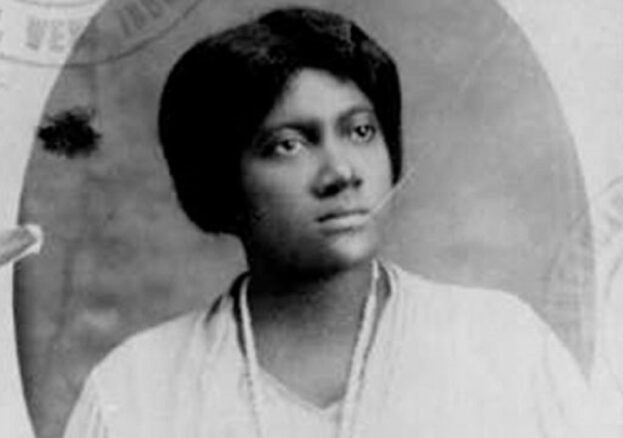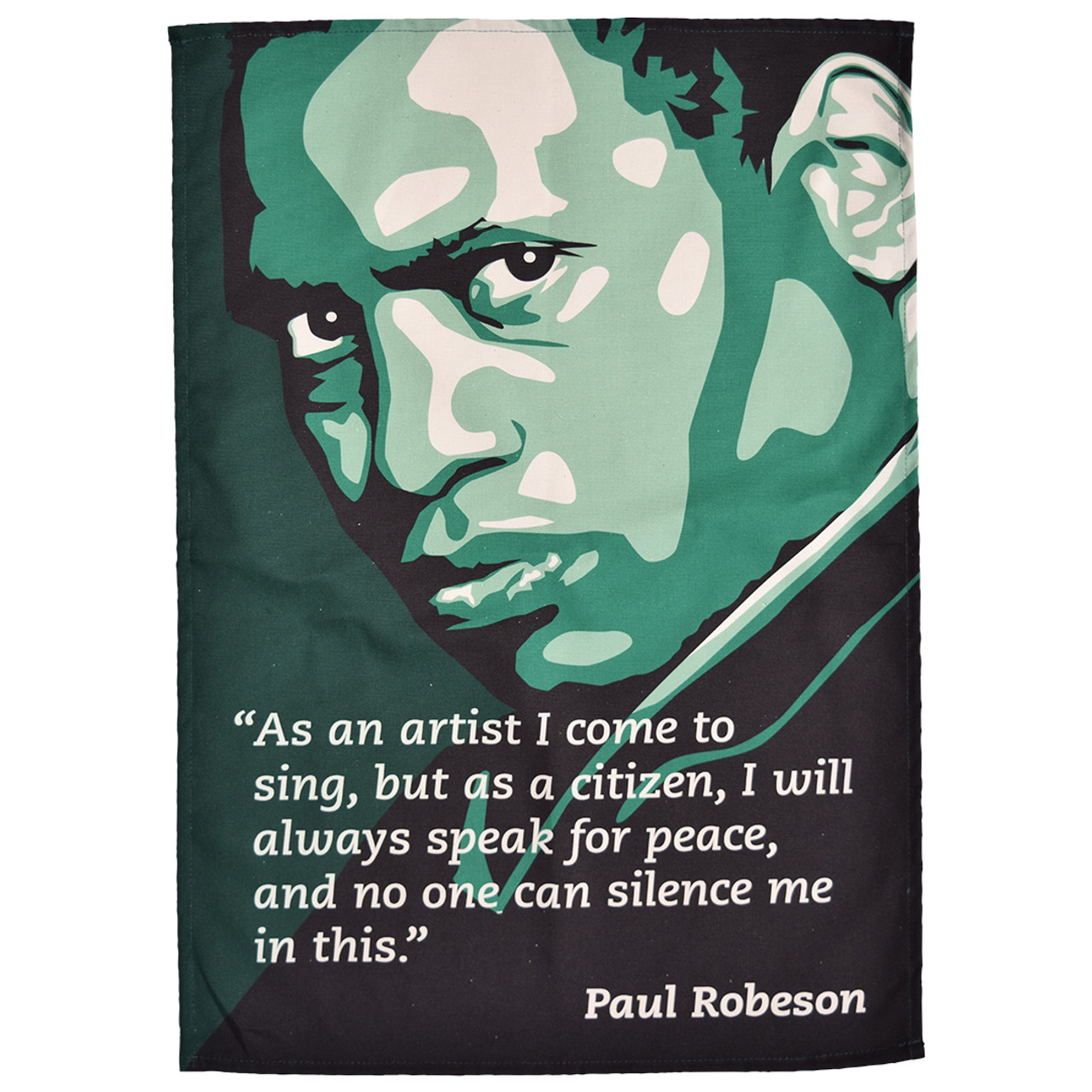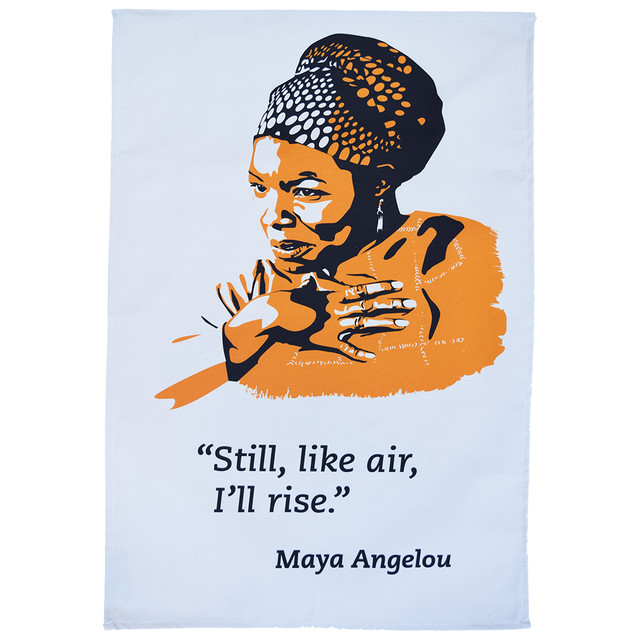Amy Ashwood - the other Garvey
Posted by Pete on 10th Jan 2024
Born today in 1897, Amy Ashwood Garvey was a pioneer of black liberation all over the Atlantic
Black liberation was a thoroughly international affair during the twentieth century.
A ‘Pan-Africanist’ movement emerged in the 1910s that quickly became a powerful force of anticolonial and anti-racist activism.
The Universal Negro Improvement Association (UNIA) was formed by black radicals in Kingston, the capital of British-ruled Jamaica, in 1914.
The individual most associated with this project is the Jamaican Marcus Garvey (1887-1940), and the Pan-African ideology of UNIA was soon being called ‘Garveyism.’
But Marcus Garvey did not work alone.

Browse Black Heroes and Heroines at Radical Tea Towel
Amy Ashwood Garvey, born today in 1897, co-founded UNIA, and was every bit the international revolutionary that Marcus was – more so, even.
Born in Port Antonio, Jamaica, Amy Ashwood Garvey was part of the British colony’s black middle class.
Ashwood Garvey’s ancestors had been kidnapped by European slave traders from the Ashanti Kingdom in what’s now Ghana, enslaved, and then transported to the Caribbean.
Amy Ashwood’s grandmother told her this story when she was a child. From a young age she developed a powerful sense of the injustices against the African and African-descended peoples of the Atlantic world.
And Amy Ashwood soon began to turn this sentiment into political action.
Amy Ashwood met Marcus Garvey in Jamaica. The two soon married and, unfortunately, this is often all Amy is remembered for – just a footnote in Marcus’ biography.
But she was so much more than that and, in many ways, so much more than him.
The marriage itself was rooted in Pan-African politics, rather than Amy just adopting the political thought of her husband.
She saw their partnership as being rooted in, “our joint love for Africa.”

The mid-20th century saw the cause of black liberation carried around the world, including by cultural figures like Paul Robeson
See the Paul Robeson tea towel
The two Garveys soon began to build the political infrastructure of Pan-Africanism together.
After co-founding UNIA in 1914, Amy created a specific women’s section for the organisation.
Her commitment to fighting gendered oppression always set her apart from – and above – Marcus Garvey as a radical activist.
Marcus was relatively patriarchal in his habits and beliefs, and that sort of gendered politics became prevalent in UNIA.
Such incoherence has been a common feature of liberation movements, struggling against one form of oppression while reproducing others. But Amy Ashwood tried to push against this tendency.
After moving from Jamaica to the United States in 1918, Amy became Secretary of the New York City branch of UNIA, and a key political figure in the contemporary Harlem Renaissance.
Through the Pan-Africanism of UNIA, the struggles against European colonialism in the Caribbean and Africa were being combined with the struggle against white supremacism inside US society.
From 1919 onward, Amy Ashwood’s marriage to Marcus began to break down. It was very acrimonious, and Marcus Garvey used his power in UNIA to marginalise Amy in the movement she had helped create.
But divorce didn’t mark the end of Amy Ashwood’s radicalism, because her politics had always been more than her marriage.
For the next fifty years she continued to agitate for black liberation throughout the ‘Black Atlantic’ – in the U.S., Britain, Africa, and in the Caribbean.
During spells in London, Amy Ashwood helped to organise students from the British colonies in Africa into political groups such as the Nigerian Progress Union (NPU) and the West African Students’ Union.
In 1934, she co-founded a jazz club – the Florence Mills Social Club – on Carnaby Street, helping it to become a diasporic hub for black radicals in England.
Working with activists such as CLR James, Amy Ashwood co-founded the International African Friends of Abyssinia to protest Mussolini’s invasion of what’s now Ethiopia.

Like poet Maya Angelou, Garvey saw liberation in global terms
See the Maya Angelou tea towel
During the 1940s and 1950s, Amy Ashwood continued criss-crossing the Atlantic world.
Back in Harlem, she helped out in the congressional campaign of Adam Clayton Powell Jr., the first African American to be elected to Congress from New York.
Amy Ashwood toured the Caribbean during the 1950s, helping to found the Barbados Women’s Alliance.
And in London, after the Notting Hill Race Riots, she helped set up the Association for the Advancement of Coloured People to resist anti-black racism in the U.K.
After a lifetime of fighting against racist and sexist injustice throughout the Atlantic world, Amy Ashwood Garvey ought to be remembered as a pioneer of black liberation in her own right.
Alongside the likes of Ella Baker and Maya Angelou, Garvey represents a long tradition of radical black women who’ve seen liberation in global terms.
